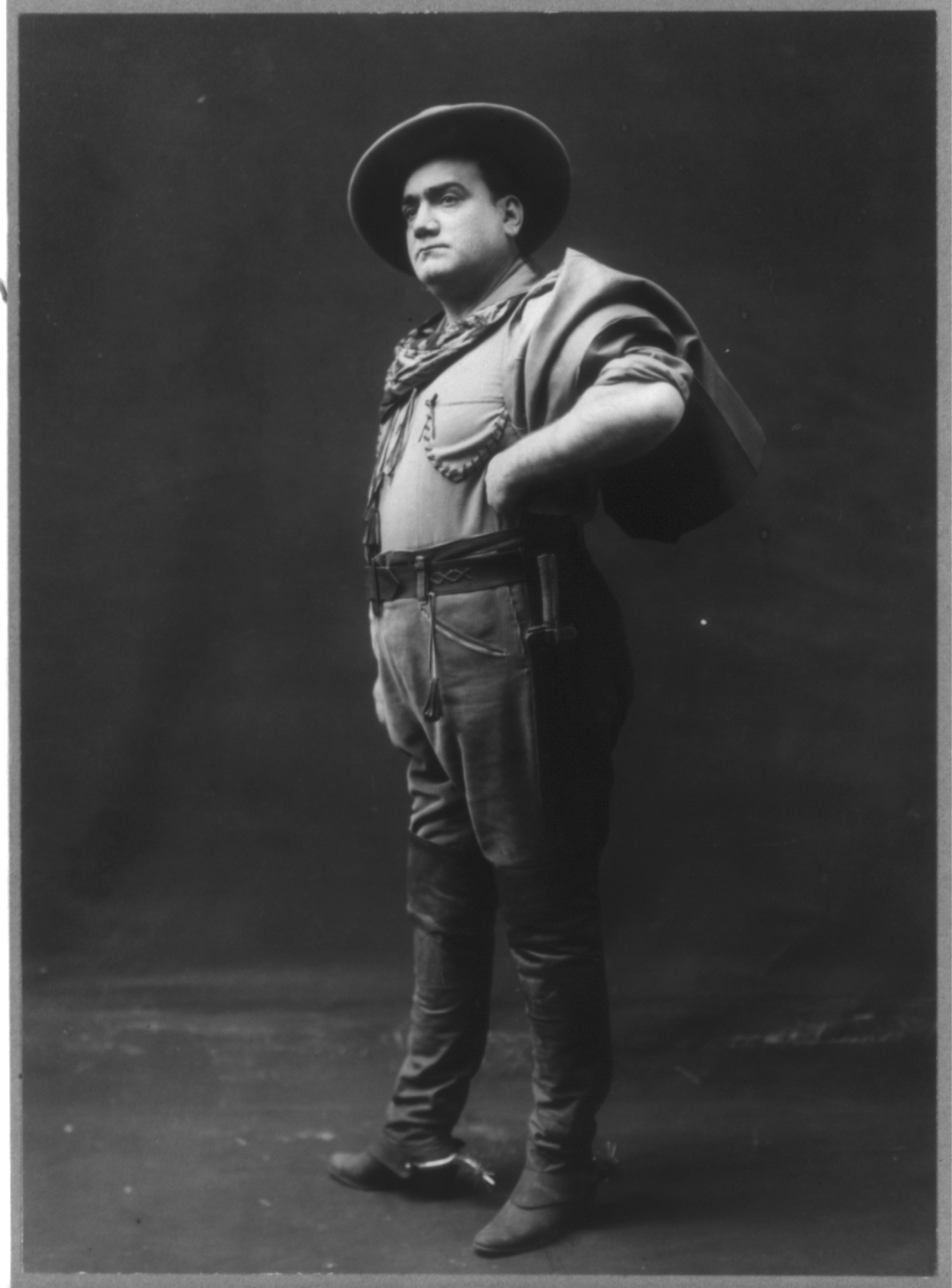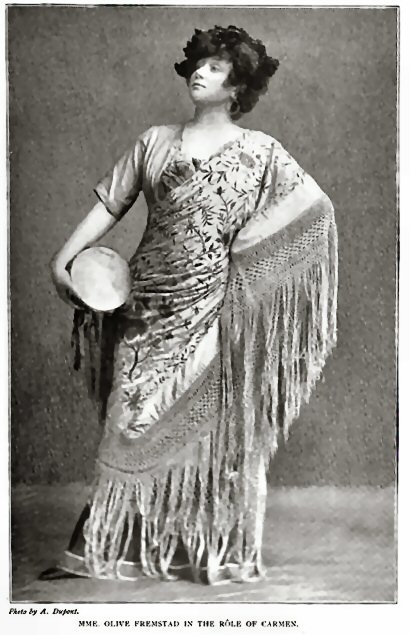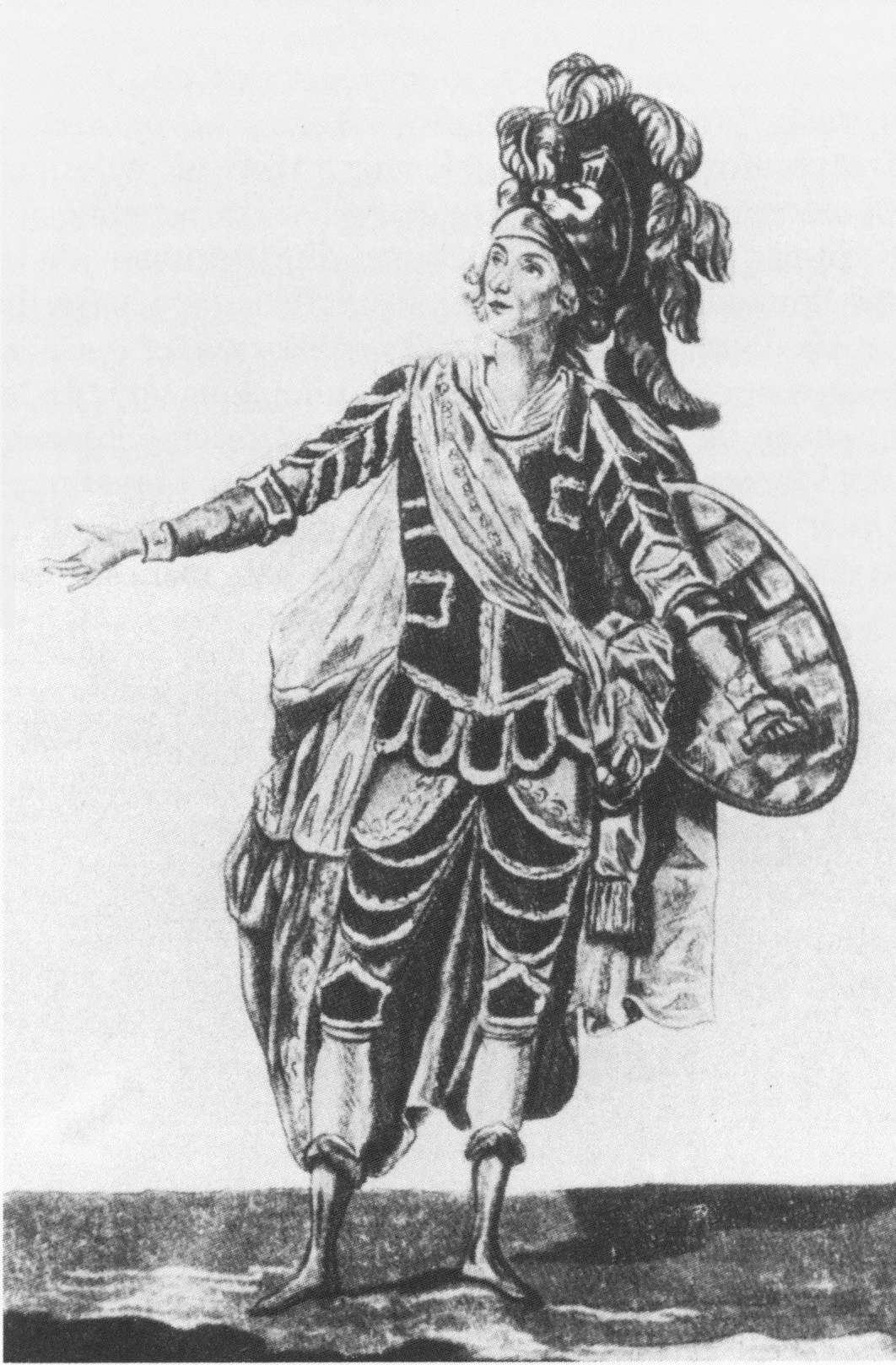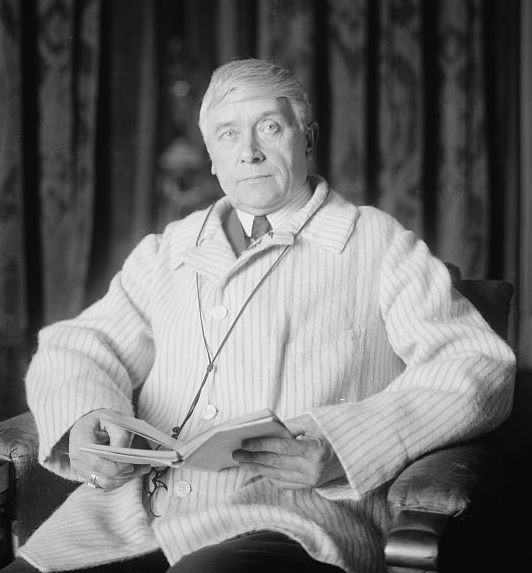|
Pasquale Amato
Pasquale Amato (21 March 1878 – 12 August 1942) was an Italian operatic baritone. Amato enjoyed an international reputation but attained the peak of his fame in New York City, where he sang with the Metropolitan Opera from 1908 until 1921. Early career Amato was born in Naples and studied locally at the Conservatory of San Pietro a Majella under Beniamino Carelli and Vincenzo Lombardo (who also gave singing lessons to the great Neapolitan tenor Enrico Caruso). In 1900, he made his debut at the Teatro Bellini in Naples as Germont père in '' La traviata''. Engagements followed in Genoa and Rome. Over the next few years he sang in Monte Carlo, Germany, parts of eastern Europe and Argentina. In 1904, he appeared at London's Royal Opera House with the Teatro di San Carlo Company; although well-received, he was not invited back. He was engaged by La Scala, Milan, and sang there in 1907 under the baton of Arturo Toscanini. His voice had matured by now into a top-class instrument ... [...More Info...] [...Related Items...] OR: [Wikipedia] [Google] [Baidu] |
Pasquale Amato 01
Pasquale is a masculine Italian given name and a surname mainly found in southern Italy. It is a cognate of the French name Pascal, the Spanish Pascual, the Portuguese Pascoal and the Catalan Pasqual. Pasquale derives from the Latin ''paschalis'' or ''pashalis'', which means "relating to Easter", from Latin ''pascha'' ("Easter"), Greek ''Πάσχα'', Aramaic ''pasḥā'', in turn from the Hebrew '' פֶּסַח'', which means "to be born on, or to be associated with, Passover day". Since the Hebrew holiday Passover coincides closely with the later Christian holiday of Easter, the Latin word came to be used for both occasions. The names Paschal, Pasqual, Pascal, Pascale, Pascha, Paschalis, Pascual, Pascoe and Pasco are all variations of ''Pasquale''. The feminine form, rather rare, is ''Pasquala'', ''Pasqualina'', ''Pascale'', ''Pascalle'' or ''Pascalina''. As a surname in Italy, Pasquale has many variations found all over the country: Pasquali, Pascale, Pascal, Pascali, ... [...More Info...] [...Related Items...] OR: [Wikipedia] [Google] [Baidu] |
Falstaff (opera)
''Falstaff'' () is a comic opera in three acts by the Italian composer Giuseppe Verdi. The Italian-language libretto was adapted by Arrigo Boito from the play '' The Merry Wives of Windsor'' and scenes from '' Henry IV, Part 1'' and '' Part 2'', by William Shakespeare. The work premiered on 9 February 1893 at La Scala, Milan. Verdi wrote ''Falstaff'', the last of his 28 operas, as he approached the age of 80. It was his second comedy, and his third work based on a Shakespeare play, following '' Macbeth'' and '' Otello''. The plot revolves around the thwarted, sometimes farcical, efforts of the fat knight Sir John Falstaff to seduce two married women to gain access to their husbands' wealth. Verdi was concerned about working on a new opera at his advanced age, but he yearned to write a comic work and was pleased with Boito's draft libretto. It took the collaborators three years from mid-1889 to complete. Although the prospect of a new opera from Verdi aroused im ... [...More Info...] [...Related Items...] OR: [Wikipedia] [Google] [Baidu] |
Emmy Destinn
Emmy Destinn ( (); 26 February 1878 – 28 January 1930) was a Czech operatic soprano with a strong and soaring lyric-dramatic voice. She had a career both in Europe and at the New York Metropolitan Opera. Biography Destinn was born Emílie Pavlína Věnceslava Kittlová () in Prague, in what was then the Austria-Hungary, Austro-Hungarian Empire. Her voice teacher since age thirteen had been Marie Maria von Dreger Loewe-Destinn, and the young singer began using her teacher's surname as a tribute. She was let go after the short engagement at the Semperoper, Dresden Opera and declined by Prague National Theatre in 1897. She debuted on 19 July 1898 at the Berlin State Opera, Berlin Court Opera as Santuzza in ''Cavalleria rusticana''. She made such progress that the intendant of the Berlin Court Opera engaged her at once when she was brought to intendant's notice. She was only nineteen at the time, but her voice and her acting soon won the Berlin public. Her engagement in Berl ... [...More Info...] [...Related Items...] OR: [Wikipedia] [Google] [Baidu] |
La Fanciulla Del West
''La fanciulla del West'' (''The Girl of the West'') is an opera in three acts by Giacomo Puccini to an Italian libretto by and , based on the 1905 play '' The Girl of the Golden West'' by the American author David Belasco. ''Fanciulla'' followed ''Madama Butterfly'', which was also based on a Belasco play. The opera has fewer of the show-stopping highlights that characterize Puccini's other works, but is admired for its impressive orchestration and for a score that is more melodically integrated than is typical of his previous work. ''Fanciulla'' displays influences from composers Claude Debussy and Richard Strauss, without being in any way imitative. Similarities between the libretto and the work of Richard Wagner have also been found, though some attribute this more to the original plot of the play, and have asserted that the opera remains quintessentially Italian. The opera had a successful and highly publicised premiere at the Metropolitan Opera, New York City, in 1910. Neve ... [...More Info...] [...Related Items...] OR: [Wikipedia] [Google] [Baidu] |
Alma Gluck
Alma Gluck (May 11, 1884October 27, 1938) was a Romanian-born American soprano. Biography Gluck was born as Reba Feinsohn to a Jewish family in Iași, Romania, the daughter of Zara and Leon Feinsohn. Gluck moved to the United States at a young age in 1889. Although her initial success came at the Metropolitan Opera in New York City, Gluck later concertized widely in America and became an early recording artist. Although various sources claim that her recording of "Carry Me Back to Old Virginny" for the Victor Talking Machine Co. was the first celebrity recording by a classical musician to sell one million copies, Victor ledgers do not support the claim—nor did Gluck ever make such a claim herself. It was awarded a gold disc, only the seventh to be granted at that time. Gluck was a founder of the American Woman's Association. Her daughter Marcia Davenport was the child of her first marriage (to Bernard Glick, an insurance man). Gluck later married violinist Efrem Zimbalist a ... [...More Info...] [...Related Items...] OR: [Wikipedia] [Google] [Baidu] |
Louise Homer
Louise Beatty Homer (April 30, 1871May 6, 1947) was an American operatic contralto who had an active international career in concert halls and opera houses from 1895 until her retirement in 1932. After a brief stint as a vaudeville entertainer in New England, she made her professional opera debut in France in 1898. She then became a member of the Metropolitan Opera from 1900 to 1919 and again from 1927 to 1929. She was also active as an opera singer in Boston, Chicago, and California. She recorded extensively for Victor Records and Columbia Records in the early decades of the 20th century. She was married to composer Sidney Homer for 52 years. The composer Samuel Barber was her nephew. Homer sang a broad repertoire which encompassed works from the French, German, and Italian repertoires. She enjoyed particular success in the operas of Giuseppe Verdi and Richard Wagner. She often stated in interviews that her favorite role to perform was Amneris in Verdi's ''Aida''. At the Met sh ... [...More Info...] [...Related Items...] OR: [Wikipedia] [Google] [Baidu] |
Olive Fremstad
Olive Fremstad (14 March 1871 – 21 April 1951) was the stage name of Anna Olivia Rundquist, a celebrated Swedish-American opera diva who sang in both the mezzo-soprano and soprano ranges.Rosenthal and Warrack (1979) p. 180 Background Born in Stockholm, she received her early education and musical training in Christiania, Norway. When she was 12 years of age her parents moved to America, settling in Minneapolis, Minnesota. Even before leaving Christiania, her progress on the piano had been such that she had appeared as an infant prodigy. She was adopted by an American couple living in Minnesota, taking on their surname of Fremstad. She began her vocal training in New York City with Frederick Bristol in 1890 after singing in church choirs, then studied in Berlin with Lilli Lehmann before making her operatic debut as a mezzo-soprano as Azucena in Verdi's ''Il trovatore'' at the Cologne Opera in 1895. She remained there for at least three years, before going on to Vienna, Mu ... [...More Info...] [...Related Items...] OR: [Wikipedia] [Google] [Baidu] |
Armide (Gluck)
''Armide'' is an opera by Christoph Willibald Gluck, set to a libretto by Philippe Quinault. Gluck's fifth production for the Parisian stage and the composer's own favourite among his works, it was first performed on 23 September 1777 by the Académie Royale de Musique in the second Salle du Palais-Royal in Paris. Background and performance history Gluck set the same libretto Philippe Quinault had written for Lully in 1686, based on Torquato Tasso's ''Gerusalemme liberata'' (''Jerusalem Delivered''). Gluck seemed at ease in facing French traditions head-on when he composed ''Armide''. Lully and Quinault were the very founders of serious opera in France and ''Armide'' was generally recognized as their masterpiece, so it was a bold move on Gluck's part to write new music to Quinault's words. A similar attempt to write a new opera to the libretto of ''Thésée'' by Jean-Joseph de Mondonville in 1765 had ended in disaster, with audiences demanding it be replaced by Lully's original. ... [...More Info...] [...Related Items...] OR: [Wikipedia] [Google] [Baidu] |
La Gioconda (opera)
''La Gioconda'' is an opera in four acts by Amilcare Ponchielli set to an Italian libretto by Arrigo Boito (as Tobia Gorrio), based on '' Angelo, Tyrant of Padua'', a 1835 play in prose by Victor Hugo (the same source Gaetano Rossi had used for his libretto for Mercadante's '' Il giuramento'' in 1837). First performed in 1876, ''La Gioconda'' was a major success for Ponchielli, as well as the most successful new Italian opera between Verdi's ''Aida'' (1871) and ''Otello'' (1887). It is also a famous example of the Italian genre of ''Grande opera'', the equivalent of French '' Grand-Opéra''. Ponchielli revised the work twice; the third and final version (that is used to this day) was first performed in 1880. There are several complete recordings of the opera, and it is regularly performed, especially in Italy. It is one of only a few operas that features a principal role for each of the six major voice types. The opera also includes the famous ballet ''Dance of the Hours'', oft ... [...More Info...] [...Related Items...] OR: [Wikipedia] [Google] [Baidu] |
Tosca
''Tosca'' is an opera in three acts by Giacomo Puccini to an Italian libretto by Luigi Illica and Giuseppe Giacosa. It premiered at the Teatro dell'Opera di Roma, Teatro Costanzi in Rome on 14 January 1900. The work, based on Victorien Sardou's 1887 French-language dramatic play, ''La Tosca'', is a melodramatic piece set in Rome in June 1800, with the Kingdom of Naples's control of Rome threatened by Napoleon's Campaigns of 1800 in the French Revolutionary Wars#Italy, invasion of Italy. It contains depictions of torture, murder, and suicide, as well as some of Puccini's best-known lyrical arias. Puccini saw Sardou's play when it was touring Italy in 1889 and, after some vacillation, obtained the rights to turn the work into an opera in 1895. Turning the wordy French play into a succinct Italian opera took four years, during which the composer repeatedly argued with his librettists and publisher. ''Tosca'' premiered at a time of unrest in Rome, and its first performance was delayed ... [...More Info...] [...Related Items...] OR: [Wikipedia] [Google] [Baidu] |
Tristan Und Isolde
''Tristan und Isolde'' (''Tristan and Isolde''), WWV 90, is an opera in three acts by Richard Wagner to a German libretto by the composer, based largely on the 12th-century romance Tristan and Iseult by Gottfried von Strassburg. It was composed between 1857 and 1859 and premiered at the Königliches Hoftheater und Nationaltheater in Munich on 10 June 1865 with Hans von Bülow conducting. Wagner referred to the work not as an opera, but called it "" (literally ''a drama'', ''a plot'', or ''an action''). Wagner's composition of ''Tristan und Isolde'' was inspired by the philosophy of Arthur Schopenhauer (particularly ''The World as Will and Representation''), as well as by Wagner's affair with Mathilde Wesendonck. Widely acknowledged as a pinnacle of the operatic repertoire, ''Tristan'' was notable for Wagner's unprecedented use of chromaticism, tonal ambiguity, orchestral colour, and harmonic suspension. The opera was enormously influential among Western classical com ... [...More Info...] [...Related Items...] OR: [Wikipedia] [Google] [Baidu] |
Pelléas Et Mélisande (opera)
''Pelléas et Mélisande'' (''Pelléas and Mélisande'') is an opera in five acts with music by Claude Debussy. The French libretto was adapted from Maurice Maeterlinck's symbolist play of the same name. It premiered at the Salle Favart in Paris by the Opéra-Comique on 30 April 1902; Jean Périer was Pelléas and Mary Garden was Mélisande, conducted by André Messager, who was instrumental in getting the Opéra-Comique to stage the work. The only opera Debussy ever completed, it is considered a landmark in 20th-century music. The plot concerns a love triangle. Prince Golaud finds Mélisande, a mysterious young woman, lost in a forest. He marries her and brings her back to the castle of his grandfather, King Arkel of Allemonde. Here Mélisande becomes increasingly attached to Golaud's younger half-brother Pelléas, arousing Golaud's jealousy. Golaud goes to excessive lengths to find out the truth about Pelléas and Mélisande's relationship, even forcing his own child, Yniold ... [...More Info...] [...Related Items...] OR: [Wikipedia] [Google] [Baidu] |
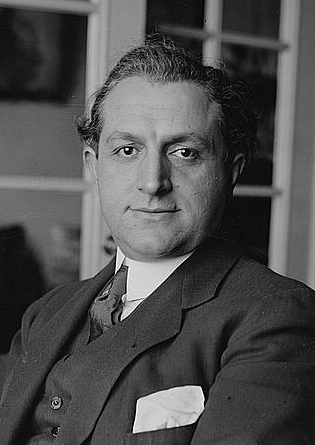
_1.jpg)

